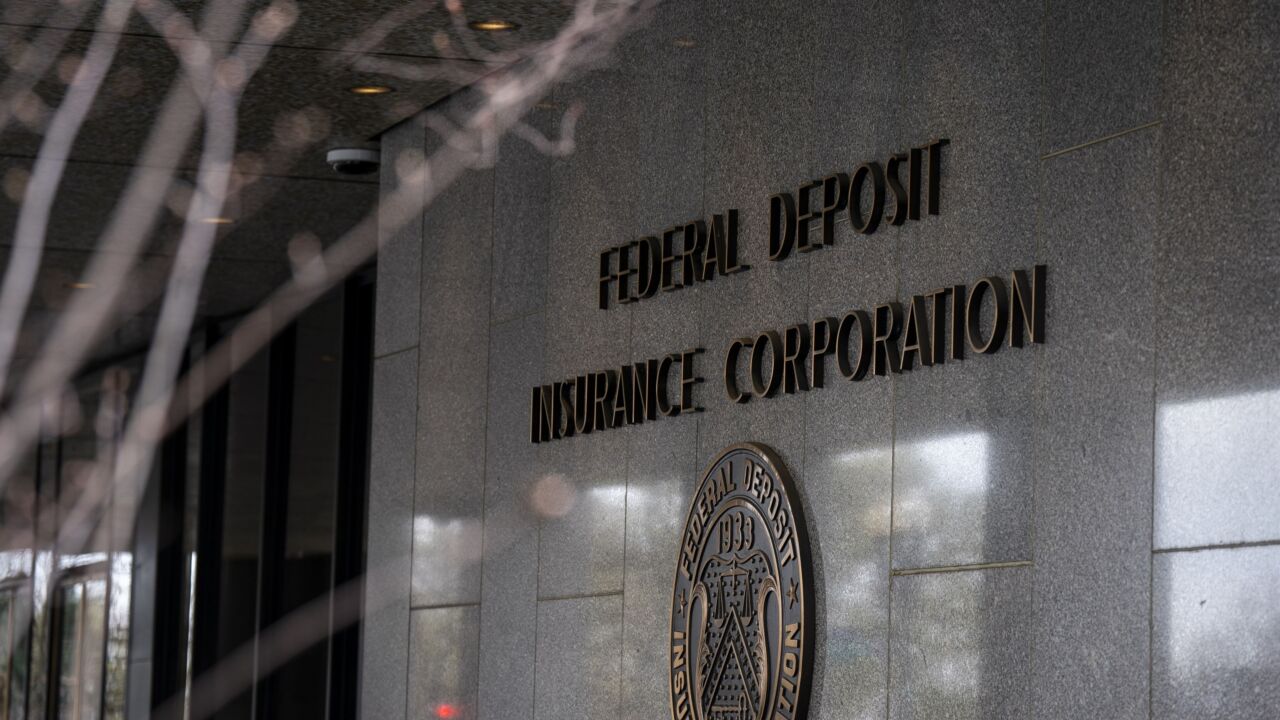
Challenger bank HMBradley is winding down its consumer products over the next month as rising interest rates and competition for deposits make customer acquisition costs untenable, said CEO Zach Bruhnke.
But the fintech, founded in 2018, isn't closing shop. Instead, beginning next year, HMBradley will begin selling technology to banks.
"Five years ago, if you told me, 'You're going to be selling in the banks,' I would have laughed at you," Bruhnke said in an interview. "I would say the tide has shifted dramatically in the last five years, and banks are actually buying software, and they need it desperately."
HMBradley's shift to a business-to-business [B2B] model after
By the time the neobank started taking folks off its waitlist at the beginning of this year, Bruhnke said it had missed the sweet spot in the market.
"When we started this company in 2018, I was telling everyone that would listen, 'Rates will not be low forever. You need to gather as many deposits as possible, and they need to be sticky," Bruhnke said. "Frankly, we did everything right, except for having the right initial partner. That's not a knock on Hatch. We made our own choices there, and obviously that wasn't the right call."
Bruhnke said if HMBradley had partnered with New York Community Bank, its second banking partner, originally, he thinks the company would have several billion dollars in deposits at this point, and be profitable. Instead, HMBradley will start closing customer accounts on Dec. 16. Hatch did not immediately respond to request for comment.
Michele Alt, co-founder and partner of consulting firm Klaros Group, said that as rates have gone up,
When HMBradley started onboarding customers in January after the18-month waitlist period, the CEO said deposits were originally on pace to double year over year. However, growth started slowing, the amount of deposits per account dipped and competition with banks that could pay high rates for funds drove up customer acquisition costs by more than double. Ultimately, the fintech decided that shifting to B2B could provide more revenue.
HMBradley bought a new core system and built banking technology in-house when it switched banking partners. Bruhnke said the company designed proprietary ACH and wire transfer monitoring capabilities, including technology that generates virtual account numbers for ACH to minimize fraud exposure. He added that HMBradley had hundreds of millions of dollars in deposits, but only saw about $1,000 per month in fraud and ACH losses.
This ACH-related solution will likely be the first go-to market product that HMBradley rolls out as a tech provider, Bruhnke said. He added the company is "in the door" with several top-25 institutions, and plans to announce client deals in 2024.
Alt said fintechs' greatest asset is often their technology. She said many companies are started by technologists or engineers who want to fix a problem in banking.
"I think it will be interesting to see, as these various [fintech] models come under pressure, whether the technology that was at their heart can be financially successful in another way," Alt said. "Rather than serving as the foundation for fintechs' competitive strategy with banks, if it can be sold to banks."
Alt added she thinks challenger banks could have a competitive edge over other technology companies because they have experience meeting financial regulatory standards, which could be an attractive differentiator.
At the American Fintech Council's 2024 policy summit, banking-as-a-service was the talk of the town as experts shared how to avoid missteps in the business.
In the B2B space, HMBradley is now in the market to compete with other technology vendors for bank clients. Bruhnke said HMBradley's new focus will be to try to edge out major financial technology providers in the industry, like FIS and Fiserv.
"We think this is a great wedge into a very large market that's very ripe for disruption," Bruhnke said. "It's a big, daunting task … we have a lot of ambition of where this could go and we believe that there's really a future here in going after some of the stalwarts in the industry."
Consumer-facing fintech is a tough market for several reasons right now, including rising interest rates and a tighter fundraising environment. Daylight,
Bruhnke said since the majority of HMBradley's team was consumer-focused, there will be layoffs, but didn't say how many employees it would impact.
Regulatory scrutiny in the sector has also been mounting for more than a year, driving many banks to reevaluate their fintech partnership strategies, but Bruhnke said compliance wasn't a factor for HMBradley's consumer slump.
He added that compliance has been a bright spot for the fintech as banks look to buy technology that mitigates fraud.
"I think it's truly the right place, right time with the fraud numbers that you're seeing in ACH, and the lack of mitigation abilities that a lot of banks have with current vendors, because it really gives us a shot to come in and do something special."





